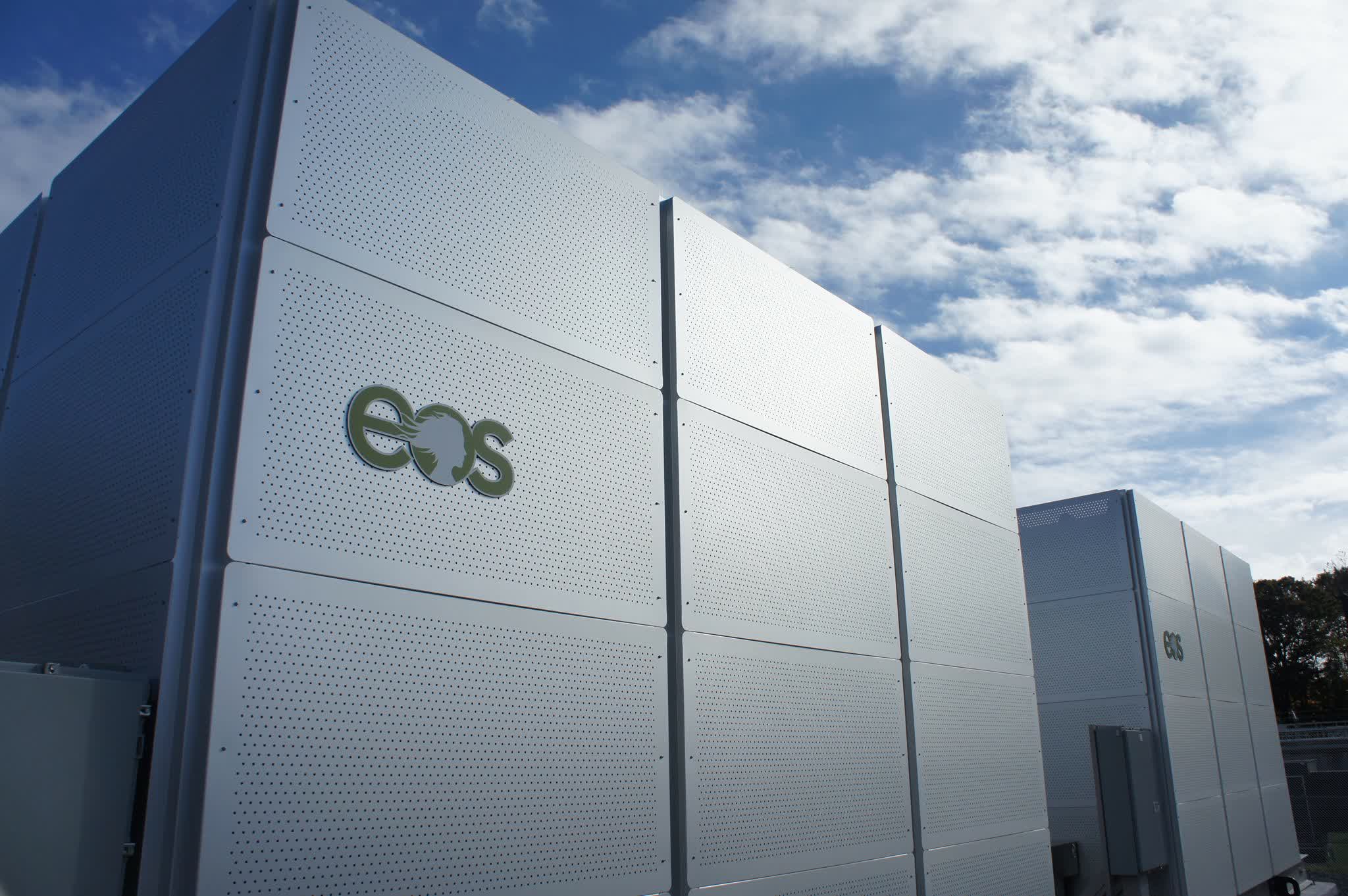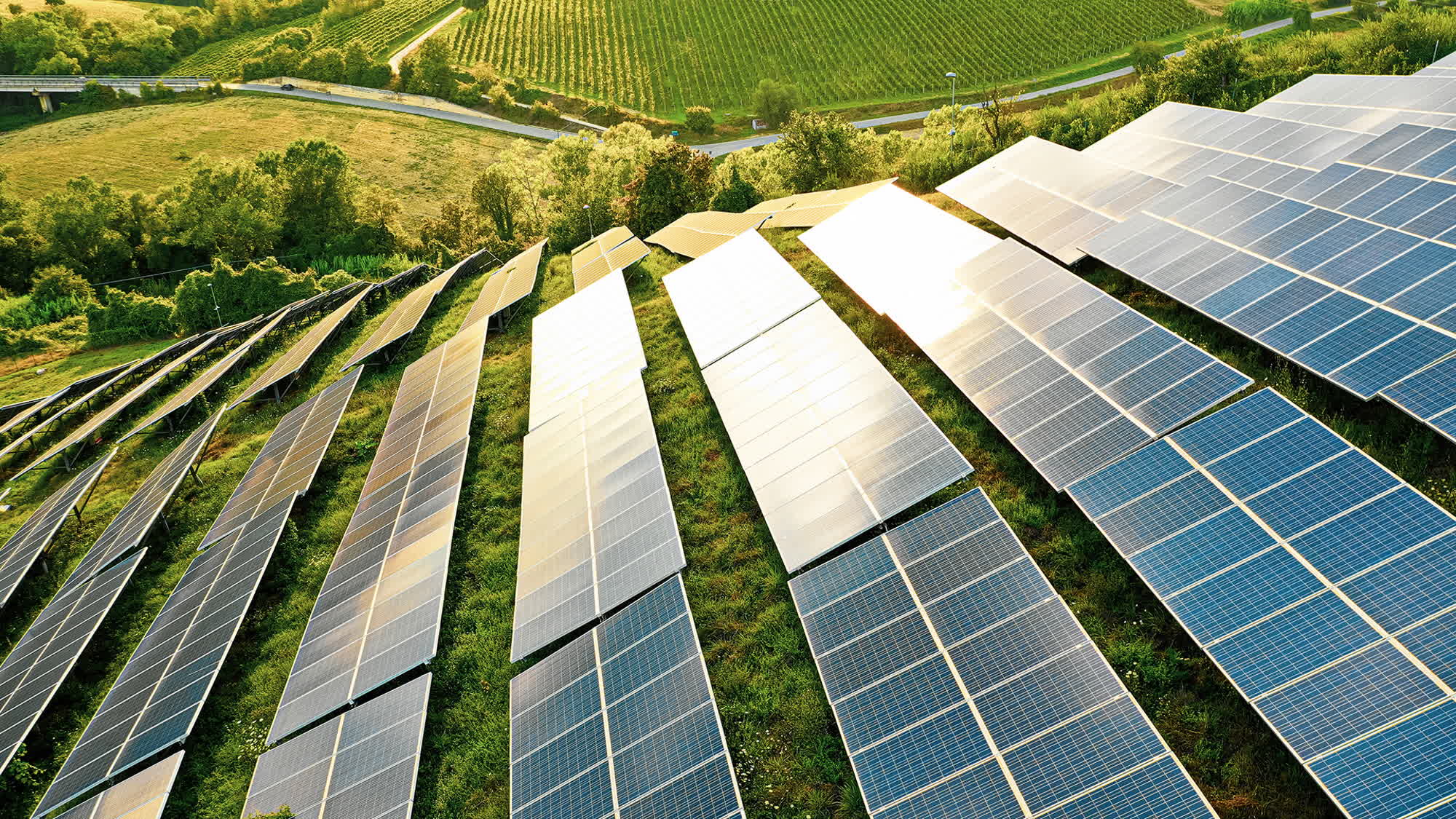Forward-looking: Many companies and organizations are actively pursuing sustainable and efficient alternatives to lithium-ion batteries. Eos Energy, for instance, is proposing a zinc-based energy storage system that has garnered conditional approval for a loan from the US Department of Energy to develop gigawatt-class storage capacity.
The US Department of Energy recently announced a conditional commitment to provide Eos Energy Enterprises with a loan of approximately $400 million. This loan will be used to establish four new, cutting-edge production lines dedicated to manufacturing Eos Z3 battery systems. These batteries are built on the "Znyth" technology, which, as claimed by Eos, relies on readily available raw materials and is engineered to overcome the most pressing limitations associated with traditional lithium-ion batteries.
Eos specializes in zinc-bromine batteries, which offer a promising alternative to lithium-ion technology. These batteries are known for being safer, more affordable, and environmentally sustainable as rechargeable energy storage solutions. Zinc-bromine batteries operate through a chemical reaction between zinc metal and bromine, generating an electric current. They employ an aqueous electrolyte that is less susceptible to overheating and fire hazards compared to lithium-ion counterparts.
The DoE's conditional commitment is intended to support 80 percent of Eos' Project Amaze, an ambitious $500 million initiative aimed at scaling up the production of Eos Z3 batteries and expanding the company's manufacturing facilities located in Pennsylvania. If successful, this loan will enable Eos to increase Z3 battery production to a capacity of 8 GWh per year by 2026. Additionally, this project will create new employment opportunities and reduce the dependence of the US energy market on foreign supply chains.

Zinc-bromine batteries offer significant advantages over lithium-ion systems, including enhanced stability, reliability, and an extended lifespan. Zinc, a key component in these batteries, is one of the most abundant materials globally and ranks as the 23rd most prevalent element in Earth's crust. Presently, Eos' Pennsylvania plant boasts a manufacturing capacity of approximately 540 megawatt-hours per year, although it currently operates below its full capacity.
The energy storage market is experiencing rapid growth, as highlighted in the DoE's announcement. However, this market is predominantly dominated by lithium-ion and lithium iron phosphate battery technologies, primarily suited for short-term duration applications. Eos Z3 technology, in contrast, is designed for long-duration applications, such as energy storage systems that can support grid infrastructures coping with an increasing influx of renewable energy sources.
In the future, the DoE anticipates that Eos will source "almost all" of its materials from within the US. This strategy aims to bolster the domestic market against external volatility and supply chain disruptions. According to Eos CFO Nathan Kroeker, the DoE loan is a pivotal component of a larger plan, envisioning a production facility with the potential to serve a substantial "200 GWh market opportunity."
